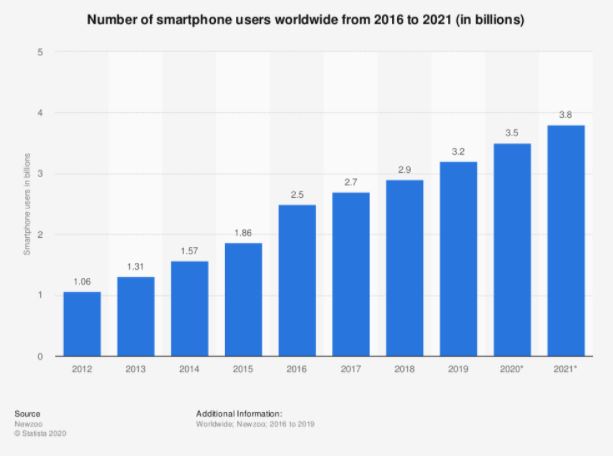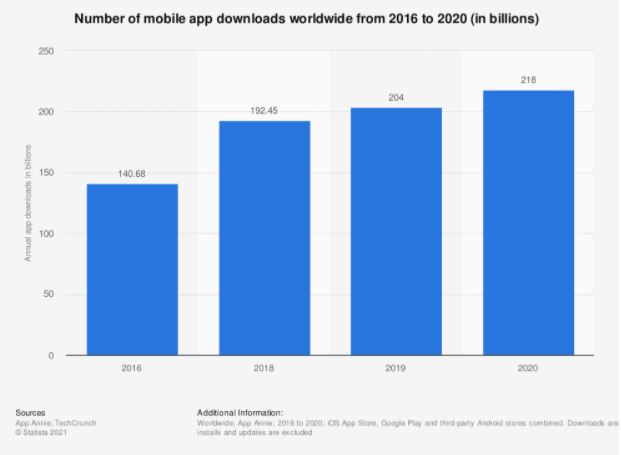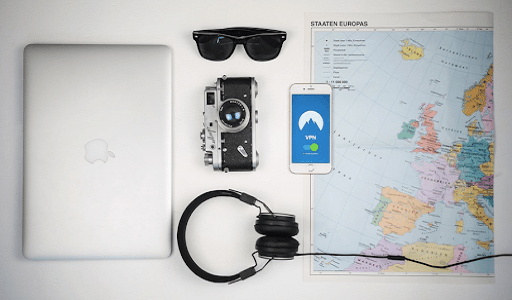Data Tracking Policy: The number of smartphone users is climbing the limits, and so do the number of applications developed. As smartphones provide most services on a small and personalized screen, people are using them more and more to fulfill most of their requirements.
According to reports, the number of smartphone users has climbed above 3 billion and is still subject to increase only.

These applications provide better usability than many other options out there. We tend to depend on them to get our tasks done.
However, with the fast-paced changes in technology, every users’ security concern is becoming one of the crucial aspects to consider for the companies. As the hacking attempts on smartphone users’ devices have become more comfortable than ever. Users should understand how it is done and try to keep it at bay.
Mobile Applications: Tracking And Selling Our Data
There are numerous mobile apps present on our devices. According to research, 206 million apps were downloaded on smartphones from app stores. Also, the time spent on mobile apps has increased to 1350 billion hours until 2018 and is subject to more increase only.

However, the applications installed on mobile phones access some of your device’s data. Which is later saved and sold to other advertisers to earn benefits of a data tracking policy.
Data from Sensors: Data Tracking Policy
Several sensors are used in the pocket-computer a.k.a, a smartphone that continuously monitors the activities you do. These sensors collect the data of your location, the space where your smartphone is currently lying, the way you are holding it (landscape or portrait), and many more. Such information is collected for a single purpose only, that is, to serve you better.
The collected data enables your smartphone to better understand your position and display or provide information in such a way that is more convenient to you. However, the data to be stored and its amount is decided by the smartphone manufacturer only.
Mobile Applications: Yes, They Do Collect Data!
Mobile apps, when installed on your device, ask for permission to access specific data. These third-party applications keep on collecting data and save them over their space. The primary reason behind doing so is to provide a better user experience to every app user.
However, to protect users’ privacy, both Google Play Store and Apple App Store have specified their guidelines that, if followed, let an app get a place over the store.
Therefore, the applications being released on the app store must follow the guidelines specified, including displaying a privacy policy that declares the use of data collected to let the user understand what data is collected.
You might also like: 10 Amazing Tips to Manage Your E-commerce Website
SDKs that Transfer Information: Data Tracking Policy
To build an excellent application, the developers often tend to use the third-party SDKs (Software Development Kits) that provide better results and ease up programming an app for them.
However, some of these SDKs are to blame as they collect and share your data with others. Therefore, the security of your data lying in a smartphone is dependent upon the developer heavily as they are the ones who can only change. And stop the information sharing to third-party.
Concept of “Ad-Supported” Apps
To increase the revenue earned by the application, many app owners tend to include support for advertisements. It leads them to display advertisements in the app when users are using it. However, these “ad-supported” apps also collect your data and send it to the advertisers to let them know your interests. And display the advertisements accordingly in the data tracking policy.
Sharing every update you make in your private data, the data is stored somewhere over their system and is later used for advertising. For example, if an owner has decided to create an app like product hunt, they can track their app user’s live location and access their location data. It can later be shared with other third-party advertisers to earn profits and increase revenues.
Android vs. iOS: Why iOS is More Secure?
Android and iOS are the leading smartphone operating systems that are ruling the market. It’s crafted by Google, while iOS is exclusively used for Apple devices only. There has always been impulsive discussion upon which is more secure, and as always, iOS wins the round. The point dragging Android down in terms of security is:
Android is open-source. Android users can also edit the source code, which often leads them to leave a block open and gives easy entry to hackers to steal their data.
iOS is more secure than Android in many ways. iOS collects the user data, and most of this data gets stored on the physical device only. This saves the data from being transferred to a remote place on the internet. Protects it from possible network attacks. Also, Apple App Store ensures the application storing and using a user’s data displays a privacy policy in data tracking policy. If the user agrees, then only the app can access the data of a user.
This implements a better security constraint, which Google has also considered. And has been removing apps from the Play Store that don’t show privacy policy of theirs to users before storing their data.
Data Collectors
Most of the data collected by mobile apps go to third-party tech giants who own their apps in the market. For example, Alphabet, Facebook, Twitter, and more. These companies are tech giants who care about the user experience through their mobile apps and ensure that they offer an excellent user experience.
Conclusion
Your security is not solely in your hands when it comes to smartphones. However, choosing to limit specific applications’ access to your device can improve your safety a bit.
However, the developers can surely choose to create security for users. As Google has redefined the security for newer versions of Android, it has led many apps to reconsider their privacy policies, which is proven as a step towards enhanced security.
Would you like to read more about Data Tracking Policy-related articles? If so, we invite you to take a look at our other tech topics before you leave!










